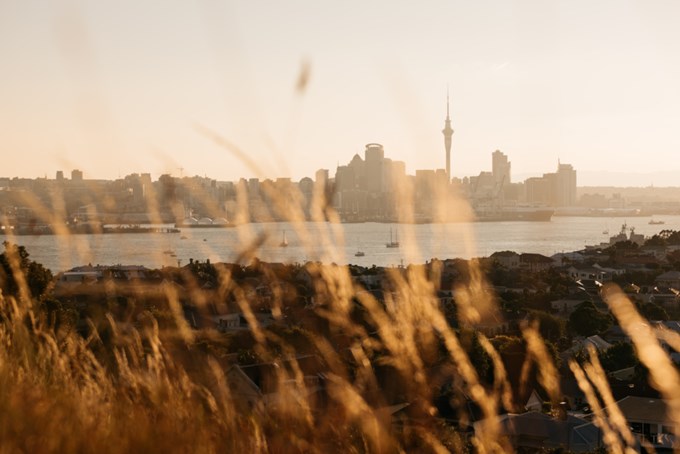Mayor Phil Goff today released the Mayoral Proposal for Auckland Council’s 10-year Budget.
The Recovery Budget, which will shape spending for the next decade in the city, prioritises:
- Auckland’s recovery from the impacts of COVID-19
- Maintaining and renewing community assets
- Protecting the environment and responding to climate change.
“This Recovery Budget aims to meet the challenges posed by COVID-19 and the massive financial impact it has had on the city, while ensuring that the burden on ratepayers is kept as low and fair as possible,” said Mayor Goff.
“This not a slash and burn budget but it’s also not the budget we had hoped to put out at the start of the year. We have to accept that COVID has changed our financial landscape and change our plans accordingly.
“However, we will strive to deliver the essential services that Aucklanders rely on and maintain the critical investments in the infrastructure our city needs, and which will play a vital role in stimulating economic recovery.”
"The Recovery Budget I am proposing responds to the unprecedented $1 billion loss in revenue caused by COVID-19 by:
- Locking in savings of at least $90 million each year for the next 3 years
- Selling surplus properties to invest in critical infrastructure
- Temporarily increasing borrowing for the first three years, thereafter, returning to the current level
- Retaining the long-term commitment to a 3.5 per cent rates increase. To respond to the COVID-19 crisis, this proposal includes a one-off rates increase of 5 per cent to be introduced for the next financial year only, as an interim measure, before returning to 3.5 per cent the following year
“Without a suite of measures to counter the $1 billion financial hole caused by COVID, our city will go backwards,” said Mayor Goff.
“We don’t want a city full of potholes and unkept parks, so we need to take more urgent action now.
“While not all Aucklanders will be thrilled with a one-off rates bump of $36, it is a one-off measure that amounts to less than 70 cents a week for the average property. This increase will allow us to do more in transport infrastructure including addressing road safety, further drought proof our city, continuing our response to climate change, protect our kauri trees and maintain our parks and sports fields.
“The extra $36 per household for one year will mean we maintain a spend of $31 billion in our capital infrastructure programme. That is compared to the $26 billion we had put aside in the 2018 10-year budget.
“Now is not the time to cut back on fixing our city’s infrastructure. We have been catching up on decades of underinvestment through our previous 10-year Budget and were making significant progress on our infrastructure deficit. We cannot allow that momentum to be wasted.
“While the immediate focus of the first three years of the Recovery Budget is responding to the COVID crisis, we are well aware of the increasing threats posed by climate change.
“In response, we are immediately stopping the purchase of diesel buses, enhancing tree planting and reducing black carbon in our city centre.
“While this is by no means the end of the work Council will do to combat climate change, it is a critical step on the issue that will be our biggest legacy to future generations.
“I acknowledge that this budget will not be all things to all people. Many people would have liked to see us do more or, conversely, cut more. However, I believe we have found the right balance between ensuring our city is making the quickest possible recovery from COVID but also recognising that many Aucklanders are going through some incredibly tough times.
“We are all navigating uncharted waters but what we do now is vital to the progress of our city.”
Finance and Performance Committee chair, Councillor Desley Simpson, says, “We will continue to focus on providing value for money to Aucklanders. With our emergency budget, we committed a record $120 million in savings, and across the next three years we will increase that amount to $270 million. We know we must continue to do more with less.
“It is important that we strike the right balance between providing adequate investment into our aging infrastructure, while continuing to focus on finding efficiencies and further savings across our business. This means making hard decisions, like cutting staff numbers, but our bottom line will always be to provide stability and manage our finances prudently.”
Deputy Mayor Bill Cashmore agrees: “This budget proposal is the most difficult ever developed in Auckland’s history, but with COVID-19 continuing to run rampant globally and border closures set to continue for some time, we have no choice but to make hard calls to protect critical services, maintain community assets and plan for the future.”
Read the Mayoral Proposal for Auckland Council's 10-Year Budget 2021-2031.
Supporting documents
- Draft LTP Budget for consultation
- Attachment A - Budget Report - Budget update process and results
- Attachment B - Budget report - Risk-based Prioritisation Framework
- Attachment C - Budget Report - Scenario modelling
- Attachment D - Budget Report - Highly constrained scenario
- Attachment E - Budget Report - Asset Recycling
- Lane 1 - Climate action investment options
- Lane 2 - Housing and Growth Infrastructure
- Lane 3 - Community Investments
- Natural Environment Targeted Rate Proposal
- Water Quality Targeted Rate extension proposal


